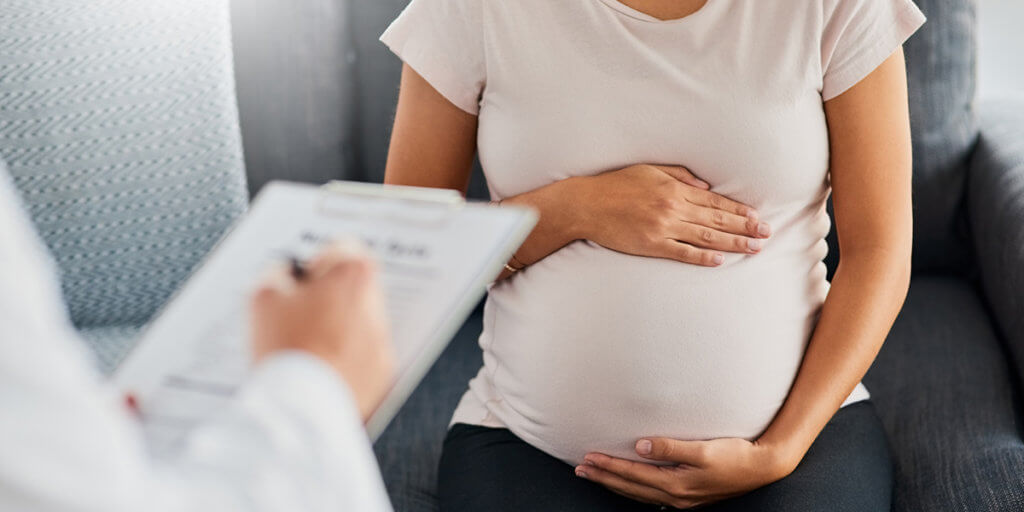
Pregnancy is one of the most magical (and intense) things you can go through as a woman. It’s a time of hormones, mommy-to-be books, and lots of doctor’s appointments. The challenges of motherhood begin long before your bundle of joy has even started to grow. Among the many changes your body will go through, there are several illnesses that you should talk with your doctor about – one being Group B Strep.
Group B Streptococcus (GBS) is a type of bacterial infection that can be found in a pregnant woman’s vagina or rectum. Group B Strep is typically found in these areas of about 25% of all healthy, adult women.
How do I find out if I have Group B Strep infection?
The Center for Disease Control and Prevention (CDC) recommends routine screenings for vaginal strep B for all pregnant women, which is usually performed between the 35th and 37th week of pregnancy. If you test positive for GBS, don’t freak out! Testing positive simply means you are a carrier. It doesn’t always mean your newborn will become ill. Approximately 1 out of every 200 babies whose mothers carry the bacteria and do not get treated with antibiotics, will develop signs and symptoms of the disease. However, there can be symptoms that indicate you are at a higher risk of having a newborn baby with GBS, including:
- Labor or rupture of membranes before 37 weeks
- Fever during labor
- A urinary tract infection as a result of GBS during pregnancy
- Rupture of membranes 18 hours or more before delivery
How did I get Group B Strep?
The bacteria that cause group B strep usually lives in the intestines, vagina, or rectum. Most women show no signs of carrying the GBS bacteria. About 1 in every 4 pregnant women carry the GBS bacteria. The bacteria don’t spread through food, water, or anything that people might have come into contact with – the spread of this bacteria is generally unknown.
In Newborns and Their Mothers
The signs and symptoms of GBS can often seem like other health problems in newborns and babies, like:
- Fever
- Difficulty
- Irritability or lethargy
- Difficulty breathing
- Blue-ish color to the skin
If your baby contracts this disease in the first week of life have "early-onset GBS disease" and show symptoms on the day of their birth. However, babies who develop the disease later can appear healthy at birth, and during the first week of life. Women who give birth to a baby that develops GBS do not typically feel sick or show any symptoms.
How can I treat and prevent this disease?
There are two best practices to prevent GBS disease during the first week of a newborn's life; testing pregnant women for GBS bacteria and giving antibiotics during labor to women at increased risk. Unfortunately, there is not yet an effective way to prevent GBS disease in babies older than one week. You can find more information about antibiotics during labor and prevention here.
Keeping up-to-date on your health and wellness is one of the most important things you can do to help deliver a healthy baby. Though there may be scary statistics around Group B Strep, you can rest assured knowing there is treatment! Speak with your healthcare provider if you have questions or want to find out your risk of becoming a carrier of GBS disease. If you are in need of a primary care practitioner or OB/GYN, call our Concierge Care Coordinator at (518) 782-3800 or visit our website here.
Sources
https://www.cdc.gov/groupbstrep/about/transmission-risks.html
https://americanpregnancy.org/pregnancy-complications/group-b-strep-infection/
https://www.cdc.gov/groupbstrep/about/symptoms.html
